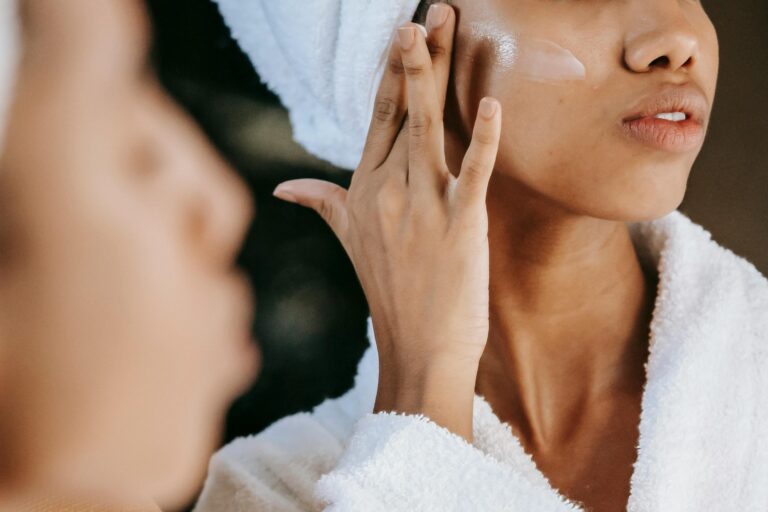Why Winter Skincare Requires Special Care
Winter is the worst season for skin. Low temperatures and the relatively dry air make our skin all wrinkled and sometimes irritated at its most sensitive parts. A skincare routine is a must since the cold weather sets in to be able to have breathtakingly radiant, soft skin. So, what exactly makes winter skincare different?
How Cold Weather Affects Your Skin
Cold weather itself is not agreeable to be combined with heating indoors sucks moisture from both the atmosphere and our skins leading to skin flakes and a dullish colour at times, but if without proper cover then our skins may become much more susceptible to a myriad of atmospheric threats that will weaken their protection further.
Dryness, flakiness, and sensitivity seem to soar during winter. Your skin could lose its glow or get rough to the touch. These are signs that your skin requires a bit of extra attention. So, let’s get to the must-try tips that will help keep your skin radiant and soft all through the cold months.
Hydrate Your Skin Inside and Out
Hydration is at the core of healthy skin, especially during winter. As the colder months dry up your skin, it is time to give hydration both a surface and an inner boost.
For the winter time, switch to a thick cream based moisturizer. Creams work as a thicker, more efficient form of a moisture barrier compared to serums and creams since it sits on the skin surface for a longer duration than the others. Some substances to watch out for would include hyaluronic acid, glycerin, or ceramides due to their hydration retention. These improve water retention throughout all areas and boost the resilience in your barrier. In applying moisturizer, hydrate your skin first. Doing so helps lock it all in.
Another feature is hydrating from within. Drinking water keeps skin cells hydrated and functioning correctly. This also helps by adding moisture to your home with a humidifier so that your skin won’t dry out any quicker.
Mild Exfoliation: Avoid Using Harsh Products
Proper winter skin care starts with the proper cleanser. The wrong kind may leave your skin dry and irritated.
Drop the foaming cleanser during winter time and opt for the creamy or hydrating type instead. Foaming cleansers dry out the skin. You do not want to dry out your skin, especially during these times. Instead, look for the ones labeled “hydrating” or “gentle.”.
The Importance of Lukewarm Water
Yes, you do need hot showers on cold days. That being said, a shower in super-hot water dries the skin as all its natural oil is removed, and in the worst-case scenario leaves it very tight. Hence, warm or lukewarm water would be okay for face wash and while showering. That maintains the moisture of the skin.
Moderate Exfoliation
You would exfoliate to help remove dead skin cells. This is a must so your skin will be glowing in the long run. Nevertheless, during winter, the frequency of exfoliating should be carefully considered as over-drying can result from excessive exfoliating.
Benefits of Gentle Exfoliation
During winter, it is enough to exfoliate once or twice a week to keep your skin smooth without overdoing it. Superficial exfoliation is beneficial to stimulate the natural removal of dead cells, this way, your moisturizer has better penetration. Select a mild form of peeling that should not harm your skin like a lactic acid peeling.
How Often Should You Exfoliate in Winter?
While exfoliation helps, overdoing it does cause redness and can dry out the skin. One should maintain a gentle approach and vary depending on your skin’s needs. A good time to reduce such frequency is when you happen to notice more sensitivity-you can cut it down a notch to once a week, or use a hydrating exfoliant instead
Protecting Your Skin from Harsh Elements
As much as this may not be hot in winter, it can still harm your skin in equal measure. Cold winds are even worse on your skin; they can definitely make it even more dry and sensitive; so cover up.
Sunscreen: An All-Year Round Must-Have
Yes, you still need sunscreen in the winter! UV rays penetrate the cloud cover, and they are damaging to your skin; apply a broad-spectrum sunscreen daily. A good starting point for SPF when spending extended periods outdoors during the winter is 30.
Protective Clothing for Your Skin
Scarves, hats, and gloves are recommended to prevent skin irritation by the strong winds and very low temperatures. They also help prevent chapping and drying. Do not forget to moisturize your hands and apply a lip balm containing SPF to avoid cracking from the air during winter.
Face masks and treatments that nurture
This includes adding nourishing face masks to your routine for extra moisture and nourishment during this winter.
Application: Once a week is in the removal of dryness as well as the moistening of the skin The ingredients of hydrating mask can be aloe, hyaluronic acids as well as honey. Which gives you soft and healthy skin Which gives you soft and healthy skin.
For the natural lovers, home masks are a perfect option for nourishing the skin. For instance, you could mash an avocado with honey and make it into a mask, then treat your skin to its moisture. Alternatively, oatmeal mixed with yogurt could make a soothing mask, softening the dry winter skin.


